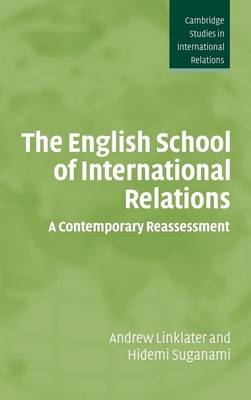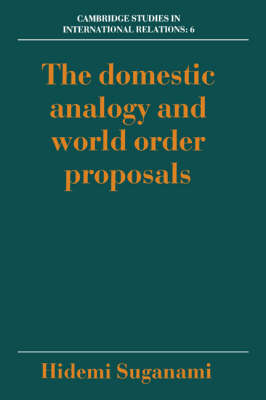Cambridge Studies in International Relations
1 primary work • 3 total works
Book 102
The English School of International Relations
by Andrew Linklater and Hidemi Suganami
Published 30 April 2006
What is the English School of International Relations and why is there increasing interest in it? Linklater and Suganami provide a comprehensive account of this distinctive approach to the study of world politics which highlights coexistence and cooperation, as well as conflict, in the relations between sovereign states. In the first book-length volume of its kind, the authors present a comprehensive discussion of the rise and development of the English School, its principal research agenda, and its epistemological and methodological foundations. The authors further consider the English School's position on progress in world politics, its relationship with Kantian thought, its conception of a sociology of states-systems and its approach to good international citizenship as a means of reducing harm in world politics. Lucidly written and unprecedented in its coverage, this book is essential reading for anyone interested in international relations and politics worldwide.
How profitable is it for world order to transfer the legal and political principles, which sustain order within states to the domain of relations between states? This has been one of the central and most contentious questions in the study of international relations. The term 'domestic analogy' refers to the idea that inter-state relations are amenable to the same type of institutional control as the relations of individuals and groups within states. In this study Dr Suganami discusses the role the domestic analogy has played in proposals about world order, peace, justice and welfare in the period since 1814. As well as analysing the ideas of major writers on international law and relations, Hidemi Suganami examines the creation of the League of Nations, the United Nations and its agencies, and the European Community - all of which have sprung from the domestic analogy. The Domestic Analogy and World Order Proposals makes an important contribution to the history of ideas about world order, exploring how this particular mode of reasoning about international relations has evolved against changing historical backgrounds.


